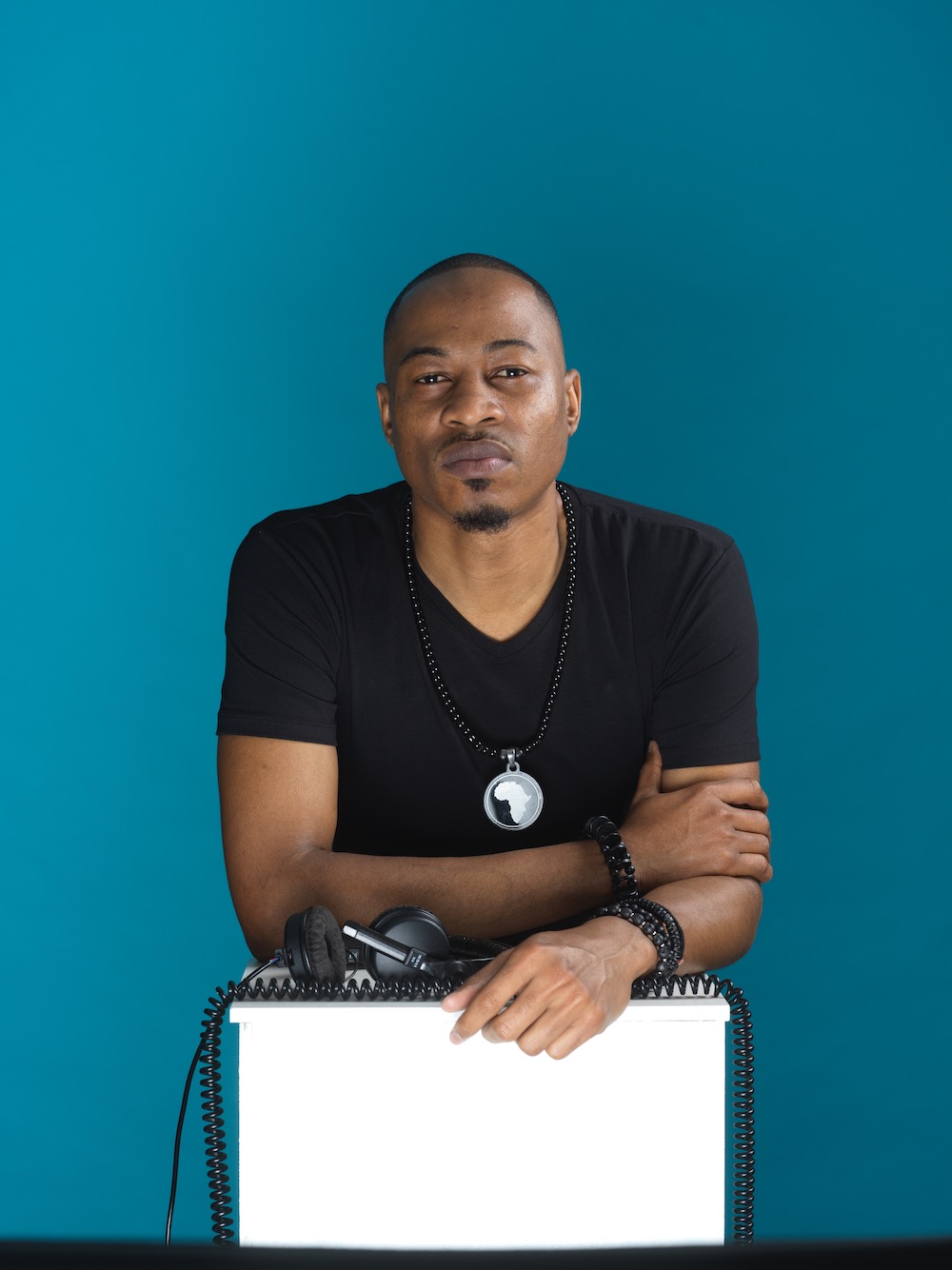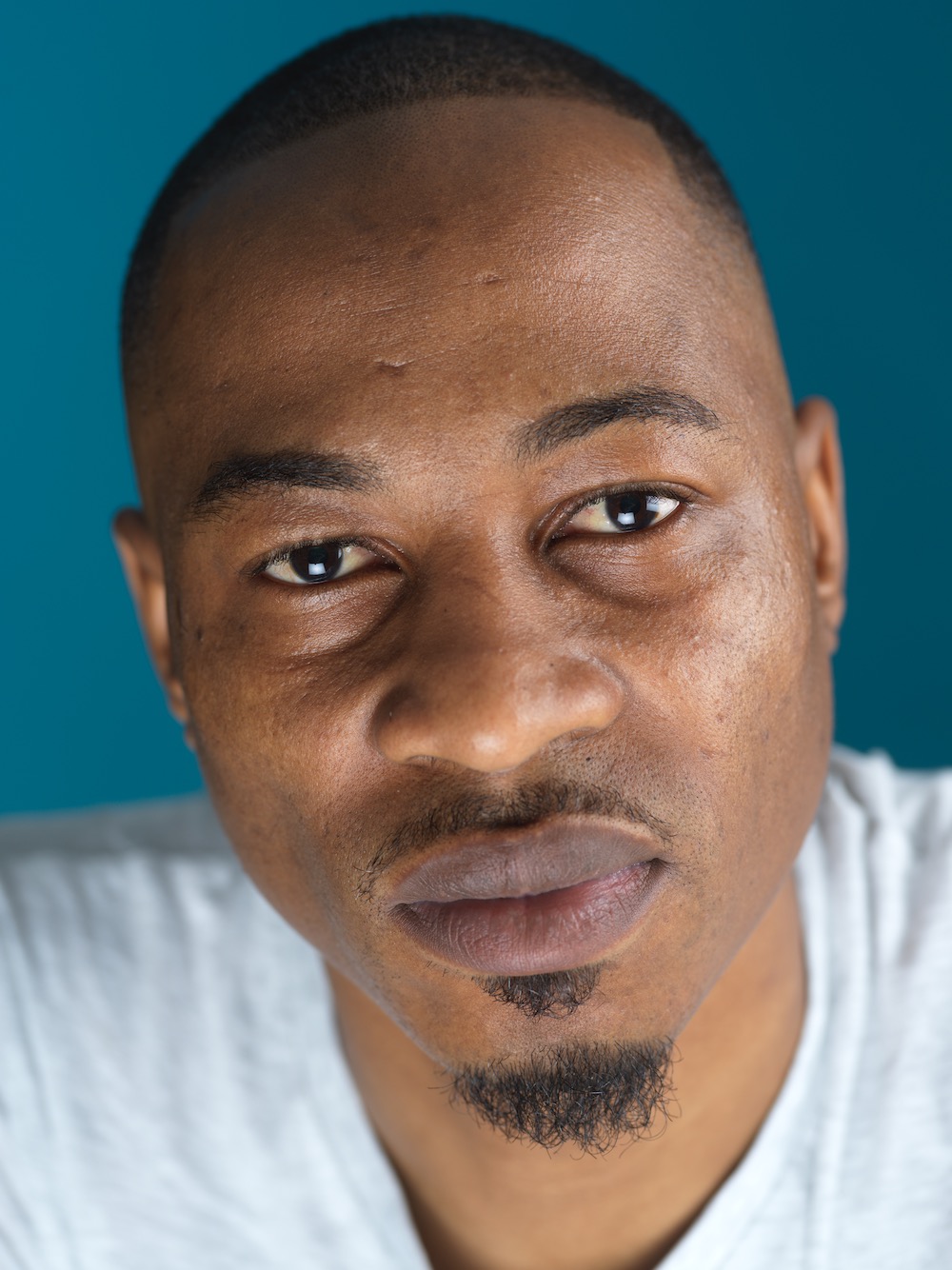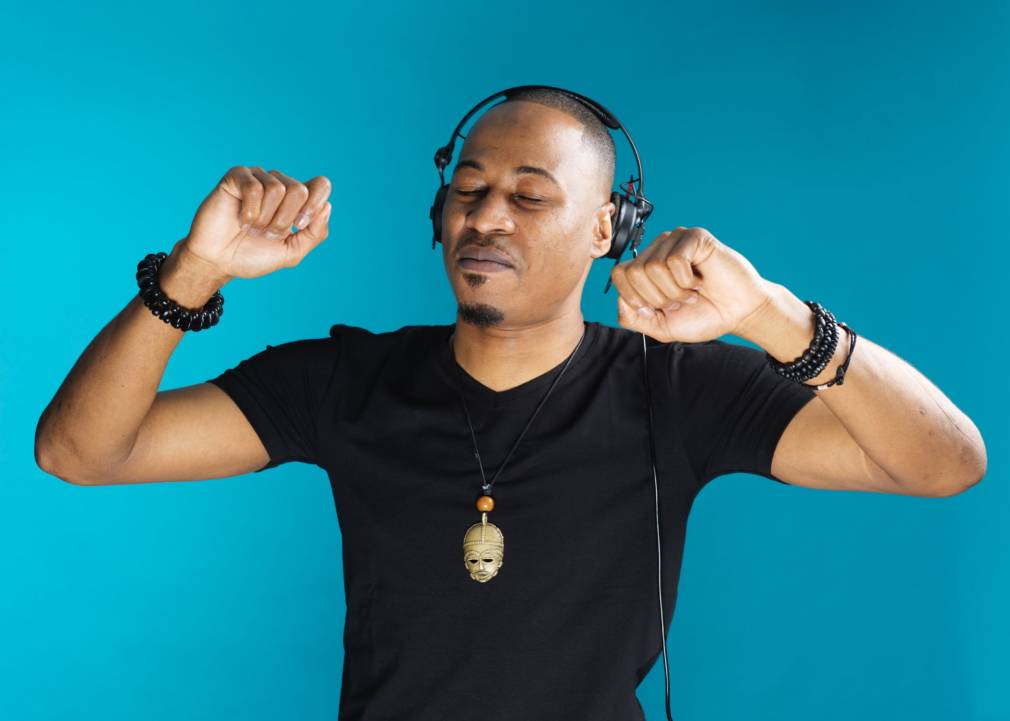Whilst, when talking about electro music, we often hear a lot about South Africa, other African countries, who demonstrably have pools of artists who have much to offer, are still far from enjoying the same levels of interest. DJ Satelite is one of those who perfectly illustrates this. Boss of the Seres Produções label for 20 years, the Luanda native is also said to be the source of kuduro 2.0 and one of the pioneers of afro house. Modest and discreet, the man in no way carries himself like a superstar DJ. “Actually, somebody wrote my bio and now people are using the word ‘pioneer’ to qualify me, but I’m not that strong!”, he jokes. “I love Boddhi Satva and Black Coffee, those guys are really big. For me it’s not about being a pioneer. When people are happy, I am happy.” In 2000, the excitement of youth took the then teenager on a path to creating his own label with his brother, DJ Vamburgue. In their neighbourhood of Bairro Marçal, these two young artists started to make a name for themselves, working on beats with other musicians in the area. “My parents worked a lot to try to change our lives, but we stayed in the same ghetto. Many people were robbing, fighting…That’s why I started a studio, to help these people to believe in themselves and to change their lives.” This precocious altruism would form the backbone of what he has become – at the age of 34, an underestimated giant of African electronic music.
Designing the future of kuduro
Satelite explains that this uptempo sound with its crazy energy owes its birth to rave parties, when the youth of Angola were passionate about techno. “Some guys created a dance and the sound came from it. Kuduro is actually born from techno. Not so many people in Angola talk about it because it was connected to the ghettos. They prefer talking about kizomba or semba…” To transform something that was so marginalised into a popular movement seems a pretty ambitious project for a teenager, but his senses were already sharpened to the place this music was taking in society. “It’s crazy because kuduro has been alive for 30 years in Angola ”, he continues. “It’s one of the most important music[al genres] of all time in this country”.
In 2006 the DJ was first recognised for his efforts when he co-produced the cult album Estado Maior do Kuduro for the group Lambas, which set records when it sold more than 10,000 CDs in just a handful of hours. In the wake of this success, Satelite and Vamburgue produced the album Batida Única for Bruno M in the same year, a clean sweep that restored the reputation of a style that is “often associated with criminals”. Though generous and loyal, Satelite still can’t forget his own situation: ‘we changed the movement, we changed the sound with Lambas, and Bruno M. Now, all of these guys I tried to help had money, a family and a house. It’s like I was changing the life of these people while mine didn’t change. I was still staying in my mother’s house.”

Get away to get a breakthrough
In other performers’ shadows, Satelite was nevertheless in no mood to get off the train he was riding. There had to be one condition however – he needed to focus on his own career. “The musical industry in Angola is crazy. Only the singers are important, nobody talks about the musicians or the producers. Radio and TV [control] the business. People pay to appear on the media! I make a lot for African culture and people are asking me to pay, what the hell is that?! ” With time, set backs and experience, Satelite understands that focusing on himself is no bad thing, and that no one is a prophet in their own country.In 2008 he moved to Namibia and started to push the afro house movement as a producer. He started touring in 2012, found his first digital distributors and began to make a real living with his music. In 2015, carried by the winds of change, he gave up everything he owned to move to Lisbon, with just five T-shirts, two jeans and a laptop. In the end he settled there, lured by its proximity to a Europe whose ears were perking up to his beats. He released Muloje, a compilation made up solely of Angolan producers. “It was in the newspapers all over Angola, my mother read it and took some pictures. People only talked about me while I was here in Portugal!” , he says surprised, although happy that his perseverance was at last paying off. The following year he would see his name appearing in Jeune Afrique (Young Africa), recognition that was as late as it was unexpected, but that he welcomed with undisguised relief. “For me it was amazing because, in Angola, nobody cares about my work. When I saw it, I was wondering who wrote it, because I didn’t give any interviews at that time. It was about artists in different parts of Africa starting to push the movement and the culture.”

Afro house as a cultural catalyst
Too cutting edge to make a name for himself in Angola, Satelite realised that he may have been too Angolan to break into Portugal. He deplores the business orientation of music, to the detriment of its cultural value. “The black music here is controlled by white guys. It is very confusing for me, because I am looking for people who are using African music. On some electronic labels here, dealing with batida sounds, they are only looking for Portuguese guys. Management controls the mind of the producers, it doesn’t make sense.” In collaboration with his wife DANYKAS DJ, Satelite continued to lead the fight by marrying music with other art forms at his Room System events in Lisbon, while at the same time expanding the Seres Produções family far beyond Portuguese-speaking countries, sadly noting that “when people talk about afro house, it is mostly about South Africa.” He continued: “my goal is to show off other producers from other countries, like Angola, Botswana, Zimbabwe, Kenya…”.
Even if he says he’s pessimistic about the future of afro house, which he believes has already begun its metamorphosis into tech-house, Satelite remains a champion of African culture. Messages of protest are scattered throughout his works. For example, “Kapuka” talks about the alcohol that politicians in the countryside distribute basically for free in order to curry favour with the people, while “Xe Mana Bella” is about the respect men have for women. “When I worked with Bruno M, I knew that people were scared to talk about the government in their songs. That’s why we had to find good words and metaphors to talk about the president who was saying in an interview that Angolan people didn’t like to study and to work, or those cities in Angola that are so dry that people don’t even have water and the government makes those poor people pay. This is completely wrong.”
At the end of 2020, DJ Satelite announced a collaboration with Cortega, kora player Noumoucounda Cissokho and the percussionist Aba Diop under the banner “Kan Tolo”, which was recorded in Dakar during the festival Electrafrique!
The anniversary compilation is still available here, More information about the label from their website.




